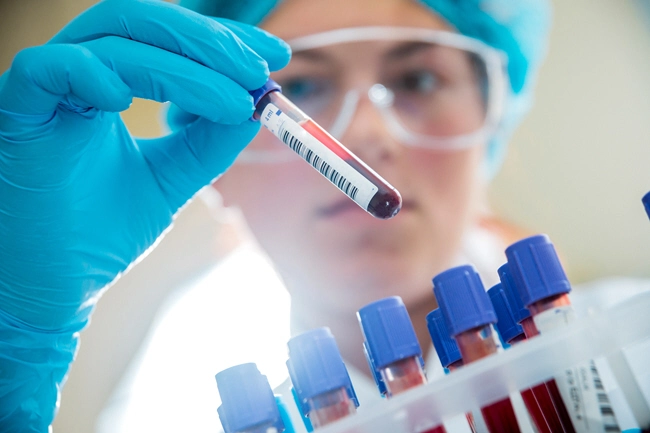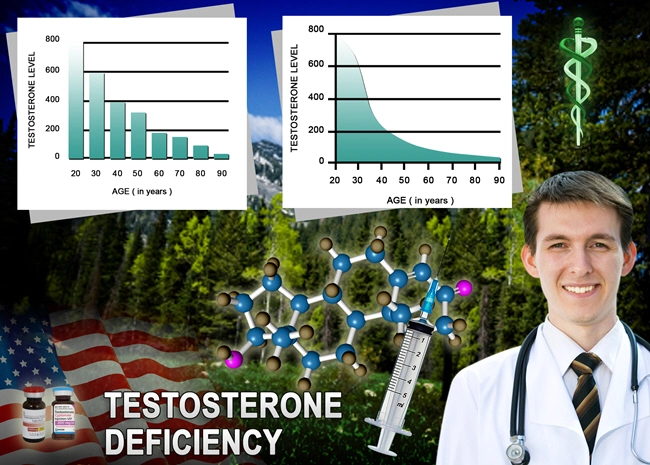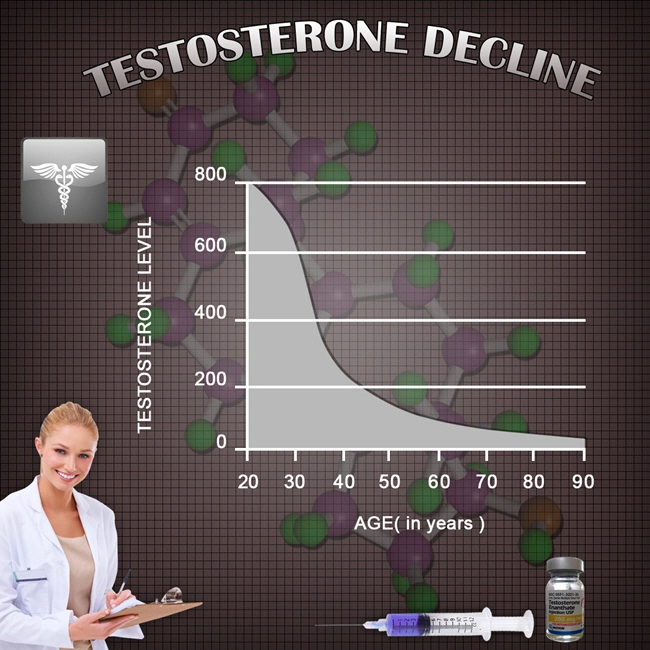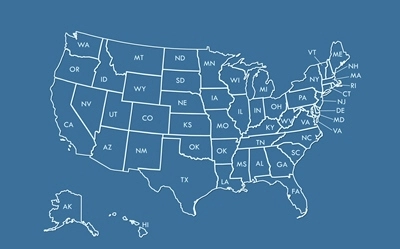
What to eat to boost testosterone
A grim fact: as men age, the amount of testosterone in their bodies drops. Beginning around age 30 the testosterone loss occurs at approximately 10% per decade.
Do the math. At that rate, an 80-year-old man will have half the testosterone as he did as a young man. And the consequences of this crash of testosterone levels are devastating since testosterone is the crucial hormone that makes men MEN! Let’s take a look at a few of the unwelcome surprises that await aging men that are losing the “manly hormone”:
are devastating since testosterone is the crucial hormone that makes men MEN! Let’s take a look at a few of the unwelcome surprises that await aging men that are losing the “manly hormone”:
- Shrinking, weakening muscles
- Accumulation of fat, especially around the mid-section
- Increasing joint aches and pains
- Constant, chronic fatigue, and loss of stamina
- Deceased libido often accompanied by erectile dysfunction
- Depression
- Mental fog and difficulty concentrating
- Dry, wrinkled skin
- And more, much more
And it’s not just Mother Nature that is working against you
You read that right. Sadly, in spite of all of the advances in medical procedures and pharmaceutical breakthroughs that have done so much to extend our lifespans, we are under an almost continual bombardment of environmental attacks on our hormones.
Environmental pollutants such as lead, copper, and other byproducts of industry, cigarette smoke (whether direct or indirect), alcohol consumption, the chemical additives in our food, and modern agricultural practices such as soil depletion and pesticides all combine to wreak havoc on our hormones, including testosterone.
But there are steps you can take to slow down and stop this disaster
That’s right. You don’t have to sit idly by while your vitality, strength, and manhood continually ebb away. Being physically fit, getting sufficient sleep, staying hydrated, and combating stress are just a few of the actions you can take to build your personal dam against the floodgates of aging.
And it all begins with nutrition
As with so many conditions, from obesity to diabetes, proper nutrition plays a gigantic role in maintaining your optimal health. “You are what you eat” is not merely a cliche...it’s a fact. Let’s get going on the list of powerhouse nutrients that can give you a fighting chance against “old-man aging” and the subsequent loss of precious testosterone.
- Zinc. Zinc and testosterone are linked in a few different ways. If your levels of zinc are deficient, your androgen receptors are adversely affected in a manner not good for testosterone efficiency. Also, zinc increases your levels of luteinizing hormone, a pituitary hormone that is a precursor to testosterone production. Finally, zinc is a potent aromatase inhibitor, which impedes the conversion of testosterone to estrogen. Food sources of zinc are tuna, oysters, crabs, shrimp, lobster, chicken, beef, pork, oatmeal, dairy products, legumes, nuts, and seeds, and consider a zinc supplement.
- Vitamin D. Vitamin D is technically a hormone but it is commonly referred to as a vitamin. Deficiencies in this critical hormone are quite common, since the traditional method of getting adequate amounts of D (synthesizing sunshine) has been hammered mercilessly by the medical establishment and the mainstream media, many are avoiding even a few minutes of direct sunlight. This is a problem for getting adequate amounts of vitamin D since most foods contain low amounts of the hormone. Therefore, strongly consider supplementation.
- Magnesium. All minerals are vital, but magnesium is considered by many to be the top-of-the-food-chain. This miracle mineral is crucial for sleep and recovery from intense workouts, and is, therefore, an indirect way to boost testosterone. There are several forms of magnesium, so when supplementing
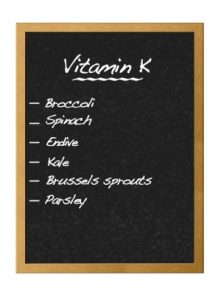 please do your research since one size will not fit everyone. Foods rich in magnesium include leafy greens, lentils, beans, grains, seeds, and nuts.
please do your research since one size will not fit everyone. Foods rich in magnesium include leafy greens, lentils, beans, grains, seeds, and nuts. - Vitamin K. Vitamin K acts as a precursor to testosterone by stimulating the activity of testosterone-synthesizing enzymes. Vitamin K2 MK-4 has been shown to increase testosterone production by activating protein kinase. Foods that are high in vitamin K are leafy greens, broccoli, Brussels sprouts, chicken, and avocados. If you are supplementing, look for the K-2 version since it is more bioavailable than K-1.
- Cholesterol. Really? Yes! Testosterone is linked to cholesterol and is critical to testosterone production. Cheese, shrimp, beef, and eggs are powerful additions to your testosterone builders. This does not mean that you have the green light to go crazy on foods that will raise your serum cholesterol levels. To stay safe, the key is to minimize the “bad carbs” in your food intake, load up on fresh or frozen vegetables, train hard and regularly, and drink green tea.
- Garlic. Garlic as a testosterone booster may surprise many people, but studies have determined that regular consumption of garlic can give your testosterone levels an upward jolt. This reason for this is thought to be a chemical in garlic called diallyl sulfide that lowers cortisol (the “stress hormone”) and raises testosterone. This is due to garlic raising the levels of luteinizing hormone in the blood plasma which nudges the testicles to produce more testosterone.
What you don’t eat or drink also counts
As important as nutrition, training, and supplements are for building testosterone, there are several outstanding and proven ways to cause the hormone to crater. Here are a few foods that you are strongly urged to at least minimize, and at best avoid:
- Excess alcohol. Moderate alcohol consumption in healthy adults will probably not destroy your health and fitness goals. But moderate means moderate.
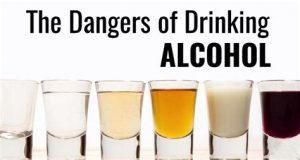 Enough said.
Enough said. - Sugar. Sugar is linked with lowering testosterone, especially sodas. It is difficult to avoid all sugary foods and drinks. But, as with alcohol, at least keep your intake of them to an occasional treat.
- Processed food. Read the chemical ingredients on the label, and if you are struggling to pronounce them it is probably a good idea to pass.
- Vegetable oil.
- Soy. The jury is out on soy, so for now beware and don’t overdo your soy consumption.
- Mint. Most of the research on mint has been conducted on women and animals, so it is uncertain how much of an effect mint will have on the testosterone levels of men. So, as with the earlier foods listed, don’t go crazy with mint.
- Tobacco use. Smoking does not do anyone any good – and that includes tobacco’s effect on testosterone.
- Licorice Root. As with mint, the studies that have indicated a drop in testosterone have been conducted on women and animals. Hopefully, that will change in the near future with both genders participating, but for now, men may consider minimizing licorice root.
For the reasons mentioned above, testosterone levels are on a downward slide with each new generation of males. This trajectory can result in catastrophic consequences in several ways, and it must immediately be stopped and reversed!
 The above suggestions can get you back on the right path. And to get to the next level, contact us for a free, no-obligation concerning the benefits of testosterone replacement therapy (TRT). Our trained staff has decades of experience in dealing with the imbalances of hormones.
The above suggestions can get you back on the right path. And to get to the next level, contact us for a free, no-obligation concerning the benefits of testosterone replacement therapy (TRT). Our trained staff has decades of experience in dealing with the imbalances of hormones.
We have a holistic, comprehensive approach that includes nutrition, controlling stress, intelligent supplementation, proper hydration, how to obtain deep, restorative, drug-free sleep on a continual basis, and, of course, the most cutting-edge testosterone replacement therapy.
Call us. And in the meantime, eat your greens!
Contact Us Today For A Free Consultation
Dear Patient,
Once you have completing the above contact form, for security purposes and confirmation, please confirm your information by calling us.
Please call now: 1-800-380-5339.
Welcoming You To Our Clinic, Professor Tom Henderson.

- Obese Patients Have a Higher COVID-19 Mortality Risk Than the General Public [Last Updated On: January 24th, 2025] [Originally Added On: August 21st, 2020]
- The Health and Hormone Balancing Qualities of Broccoli [Last Updated On: August 11th, 2025] [Originally Added On: August 27th, 2020]
- Breaking a Weight Loss Plateau: How to Reduce Body Fat When Nothing Seems to be Working [Last Updated On: January 20th, 2025] [Originally Added On: February 16th, 2021]
- The Top 25 Most Nourishing and Sustaining Foods to Add to Your Diet Today for Increased Longevity [Last Updated On: January 16th, 2025] [Originally Added On: February 16th, 2021]
- Fight Inflammation and Osteoporosis with Beets! [Last Updated On: January 14th, 2025] [Originally Added On: February 18th, 2021]
- Break a Weight Loss Plateau with Apple Cider Vinegar [Last Updated On: January 14th, 2025] [Originally Added On: February 20th, 2021]
- An Intriguing Look into How Growth Hormone Production and Fasting are Linked [Last Updated On: January 18th, 2025] [Originally Added On: February 21st, 2021]
- Health Reasons for a Vegan Diet [Last Updated On: October 25th, 2025] [Originally Added On: April 2nd, 2021]
- Leafy Greens are Medicine for Your Gut [Last Updated On: September 27th, 2025] [Originally Added On: April 23rd, 2021]
- All Praise to the Spud -- the Delicious, Health-Giving Potato, That Is [Last Updated On: August 12th, 2025] [Originally Added On: June 1st, 2021]
- 16 Cancer-Causing Foods to Avoid [Last Updated On: May 21st, 2025] [Originally Added On: August 12th, 2021]
- Longevity and Anti-Aging -- The Use of Flax Seed Oil [Last Updated On: May 7th, 2025] [Originally Added On: August 17th, 2021]
- Essential Amino Acids Critical to Health and Hormone Balance [Last Updated On: June 13th, 2025] [Originally Added On: October 6th, 2021]
- Growth Hormone and Calcium [Last Updated On: January 11th, 2025] [Originally Added On: October 16th, 2021]
- Growth Hormone and Coffee [Last Updated On: January 9th, 2025] [Originally Added On: October 19th, 2021]
- The Importance of Protein in Weight Loss and Testosterone Production [Last Updated On: January 19th, 2025] [Originally Added On: October 19th, 2021]
- Testosterone, Growth Hormone, and Sugar. [Last Updated On: January 9th, 2025] [Originally Added On: October 19th, 2021]
- Testosterone, Growth Hormone, and Processed Meat [Last Updated On: January 8th, 2025] [Originally Added On: October 19th, 2021]
- Growth Hormone and Intermittent Fasting [Last Updated On: January 7th, 2025] [Originally Added On: October 19th, 2021]
- Growth Hormone and the Importance of Nutrition [Last Updated On: January 7th, 2025] [Originally Added On: October 20th, 2021]
- Growth Hormone Stops Inflammation! [Last Updated On: January 8th, 2025] [Originally Added On: October 20th, 2021]
- Growth Hormone and Sugar Addiction [Last Updated On: January 4th, 2025] [Originally Added On: October 20th, 2021]
- Growth Hormone and Red Meat [Last Updated On: January 5th, 2025] [Originally Added On: October 20th, 2021]
- Boost Growth Hormone with Sleep [Last Updated On: May 20th, 2025] [Originally Added On: October 20th, 2021]
- A Natural Acid Found in Apples Prevents Muscle Loss AKA Sarcopenia [Last Updated On: January 10th, 2025] [Originally Added On: October 20th, 2021]
- Growth Hormone and Organic Foods. [Last Updated On: January 3rd, 2025] [Originally Added On: October 21st, 2021]
- Growth Hormone and Acidosis [Last Updated On: January 5th, 2025] [Originally Added On: October 21st, 2021]
- Growth Hormone Food Choices [Last Updated On: January 2nd, 2025] [Originally Added On: October 21st, 2021]
- Growth Hormone and Cholesterol: the Surprising Link [Last Updated On: January 6th, 2025] [Originally Added On: October 22nd, 2021]
- Growth Hormone and Weight Loss [Last Updated On: January 3rd, 2025] [Originally Added On: October 22nd, 2021]
- Growth Hormone Reduces Inflammation [Last Updated On: January 4th, 2025] [Originally Added On: October 24th, 2021]
- What You Eat Impacts Both Your Sleep AND Your Growth Hormone Production [Last Updated On: January 10th, 2025] [Originally Added On: October 24th, 2021]
- Growth Hormone Lowers Blood Sugar [Last Updated On: January 6th, 2025] [Originally Added On: October 24th, 2021]
- Testosterone and Magnesium [Last Updated On: May 22nd, 2025] [Originally Added On: April 28th, 2022]
- The Beneficial Functions of Brown Fat vs. White Fat [Last Updated On: May 26th, 2025] [Originally Added On: May 3rd, 2022]
- MOTS-c Peptide for Weight Loss and Muscle Building [Last Updated On: June 11th, 2025] [Originally Added On: November 7th, 2022]
- Looking to lose weight? Add this ingredient to meals [Last Updated On: September 24th, 2025] [Originally Added On: December 7th, 2022]
- The many health benefits of black tea [Last Updated On: September 23rd, 2025] [Originally Added On: December 13th, 2022]
- Raw Food Benefits [Last Updated On: September 20th, 2025] [Originally Added On: January 18th, 2023]
- Brain Foods that Work Together with HGH to Improve Mental Sharpness [Last Updated On: February 14th, 2025] [Originally Added On: March 9th, 2024]
